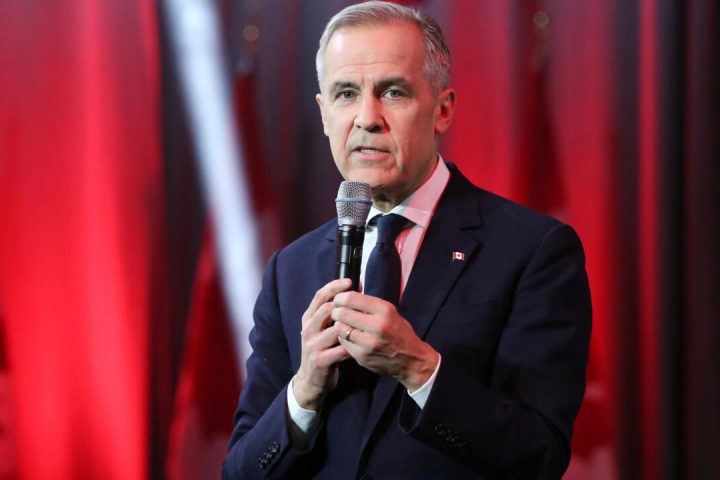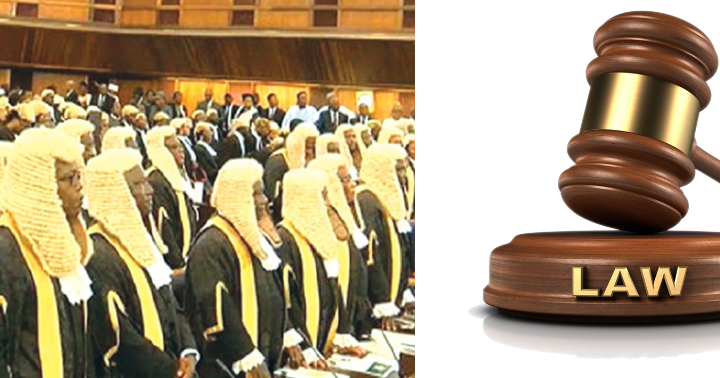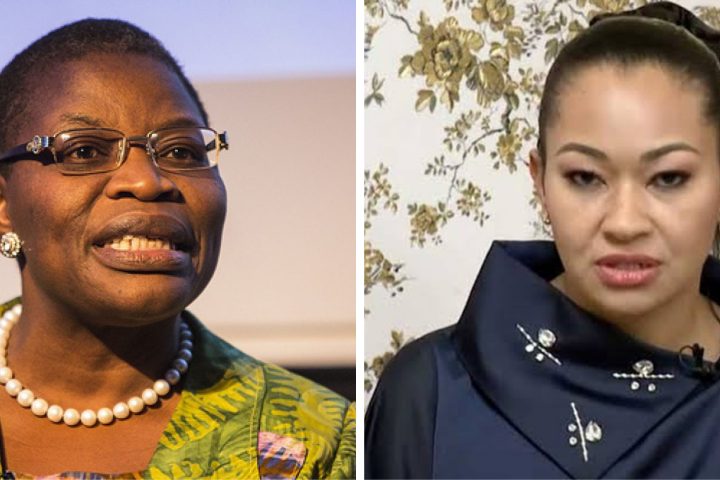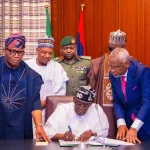The speech has been written, and the outgoing president and Commander-in-Chief of the Armed Forces, Federal Republic of Nigeria, Muhammadu Buhari, is set to tell Nigerians about his eight-year stewardship. He has been doing a bit of that since December of 2022. His media aides have been saying in recent days that Nigerians will miss Mr President when he is out of office due to his unprecedented achievements in security, inflation, debt, respect for the rule of law, energy, etc. Boldly, Buhari and his men say that the president is leaving Nigeria better than he met it. It is expected too, that in humility, the outgoing president will talk about challenges, unmet expectations and why the business of governance is a continuity. After all, Buhari spent almost six years referring to what PDP had damaged in its 16 years at the federal level.
Flash Back to 2015: A Retinue of Audacious Promises
Mr. President had warned very early in 2015 that tough days were ahead, instead of saying concretely how his 222 election campaign promises bordering on change were going to be fulfilled. At the inception of Buhari’s administration, about 80 million Nigerians lived in abject poverty, with inflation at 9.01%. It was in this context that Buhari promised to end corruption, secure our nation, prosper our people, change politics and governance, assure conflict resolution, diversify the economy and infrastructure base, and focus on societal and human capital development. According to a June 2015 report by the Center for Democracy and Development, Buhari specifically mentioned hospitals and universities, leadership, and reviving the lost hopes of Nigerians in governance. He promised that he was not going to look backwards to a failed past, but would build bridges to positive fatherhood, motherhood, brotherhood and sisterhood of the future. The promises were to be fulfilled in the first four years of 2015-2019. Unfortunately, 15 months into Buhari’s presidency, the National Bureau of Statistics in 2016 declared that Nigeria’s economy had slipped into the worst recession in 20 years. The recession, however, was already on its way before Buhari took power, with oil prices below $40 dollars a barrel in the face of an unstable economy. Buhari, bugged by medical trips abroad, kept asking for patience.
Join our WhatsApp ChannelEight Years Later, Buhari Scores Himself High
Buhari said in March while commissioning some army vehicles in Lagos that he vastly diminished the threat of Boko Haram, and provided equipment and professional trainings to the military. Buhari claimed therefore that terrorism was breathing its last breath in Nigeria as territory lost to insurgents had been recovered. He said that under his watch Nigeria became the largest economy on the continent, with a thriving digital economy, a diversified economy and “well-orchestrated development plan”. He cited the ICT sector, which he said contributed 18.44% to the GDP compared to 6.33% for the oil sector over the second quarter of 2022. On infrastructure, he said: “We have doubled Nigeria’s stock of infrastructure to GDP from about 20% to over 40% and that is no small undertaking”. Buhari also claimed that his administration has revamped the education sector through increased funding for human capital and infrastructural development.
What Is Not in the Handover Note
In February 2023, the National Bureau of Statistics estimated that 83 million Nigerians were in abject poverty, living below $1.9 a day, while 133 million Nigerians lived in multidimensional poverty. For example, about 37% of qualified youth were unemployed. Some estimates have shown that as many as 45% of Nigerians plan to relocate to other countries as a result of hardship and hopelessness. That’s according to a 2022 PEW Research Survey. ‘Over 12,000 Nigerians migrated to the UK alone in 2022, where at least 13,000 Nigerian health workers operate. Why not? The dollar-to-naira exchange rate at times reached 800 naira in the parallel market. Domestic fuel prices were increased frequently at the discretion of marketers, reaching N450 (from N165 in 2015) in the last half of 2022 before coming down to 250 in the month after the elections. A devastatingly mismanaged cashless and naira redesign policy, and strident allegations of rigged presidential elections capped a tumultuous eight years seen in many circles as Nigeria’s worst experience in federal governance. Some bank executives in 2023 said that the naira redesign crisis was not only hinged on the shortage of cash, but also on the lack of manpower (due to brain drain) to handle technological equipment and services needed to drive the banking sector.
In total, Nigerian universities spent 719 days on strike under Buhari, who had berated the previous administration for refusing to pay striking teachers. Buhari still owes the same workers in excess of seven months’ arrears of salary for work they have now done. As of 2023, over 16,000 thousand Nigerian doctors were working in just four countries. Unemployment hovered around 41% by 2023, while inflation remained a double-digit affair, standing at 22.04%. Between 2015 and 2023, Nigeria’s internal and external debt rose from N12.6 trillion to over N80 trillion, with the country having a budget deficit of N47.7 trillion over Buhari’s eight years in office, rising by over 370% from N2.41 trillion in 2016 to 11.34 trillion in 2023.
As of October 2022, nearly 25 million Nigerians were declared food insecure by Cadre Harmonise, a government-led and UN-supported food and nutrition analyst. The Food and Agricultural Organisation recently declared Nigeria’s food security situation as worsening. The NBS said food inflation surged to a 17-year high of 24.32% in January 2023 owing to a continued fall in the value of the naira. For instance, without a corresponding rise in salaries, civil servants grappled with an increase from N7,500 to N3,5000 for a bag of rice between 2015 and 2023. Since 2016, Nigeria has been experiencing a yearly average of 2,000 cases of kidnapping and 5,000 cases of deaths due to kidnappings, banditry and insurgency. Between January and June 2021, there were 2,943 and 5,800 cases of kidnappings and deaths due to insecurity respectively. That’s according to Nigeria Security Tracker. Within this time also, an estimated N10 billion were demanded as ransom by kidnappers, with nearly 1,000 students taken from schools in mass abductions. Between July 2021 and June 2022, kidnappers demanded over N650 million as ransom going by figures released by a Lagos-based security and political risk outfit. According to a report by SBM Intelligence, about 500 cases of kidnappings happened between July 2021 and June 2022, leading to 3,420 people abducted and 564 deaths.
READ ALSO: World Bank Reveals Factors Responsible For Food Inflation In Nigeria
According to the World Bank’s Public Finance Revenue Report, Nigeria’s physical infrastructure deficit will reach $3 trillion by the next 30 years, with Nigeria coming 132nd out of 137 nations ranked on the 2018 global competitive index due to low quality of infrastructure. In 2019, Nigeria moved up to 116 out of 141 countries. The report says it will take Nigeria 300 years to close its infrastructure gap. This is despite the October 2022 claim of President Buhari that Nigeria borrows to finance infrastructural projects.
Bola Tinubu in the Ring
Bola Ahmed Tinubu will normally be expected to step into the challenges and unmet expectations, primary among which is the resurgence of killings and suspected herdsmen attacks in north central Nigeria, banditry and kidnapping in the north west and south east regions, among other areas. Many are already drawing parallels by alleging a seamless link between Buhari and Tinubu. The latter has faced some fire due to the ongoing horse-trading about the leadership of the 10th national assembly, with Tinubu already handpicking the leaders who, by law, should be elected. The recent flare in insecurity just after the presidential elections has led to allegations that Tinubu is a matter of a seamless transition from hardship to hardship.
READ ALSO: Tinubu To Buhari – Expect Knocks On Your Door In Daura or Niger; I won’t Disappoint You
The ongoing elections petitions at the tribunal, the crass loss of hope in governance by Nigerians, fears about Tinubu’s state of health, and a blurry personality and past have led to echoes of fear about the hand-over-date. The presidential transition council has been appealing to Nigerians for calm and hope. The issue is: many of Tinubu’s men know that so much has dogged his campaign and election. They must tell their principal that he who is under the public gaze ought not to bathe with dust. It is on this pedestal that Tinubu should prove his mettle to the nearly 75% of the voting electorate that did not vote for him, and indeed millions of distraught Nigerians, that he is up to the task.
Dr Marcel Mbamalu is a former Editor at The Guardian and Publisher of Prime Business Africa (www.primebusiness.africa)
Dr. Marcel Mbamalu is a communication scholar, journalist and entrepreneur. He holds a Ph.D in Mass Communication from the University of Nigeria, Nsukka and is the Chief Executive Officer Newstide Publications, the publishers of Prime Business Africa.
A seasoned journalist, he horned his journalism skills at The Guardian Newspaper, rising to the position of News Editor at the flagship of the Nigerian press. He has garnered multidisciplinary experience in marketing communication, public relations and media research, helping clients to deliver bespoke campaigns within Nigeria and across Africa.
He has built an expansive network in the media and has served as a media trainer for World Health Organisation (WHO) at various times in Northeast Nigeria. He has attended numerous media trainings, including the Bloomberg Financial Journalism Training and Reuters/AfDB training on Effective Coverage of Infrastructural Development of Africa.
A versatile media expert, he won the Jefferson Fellowship in 2023 as the sole Africa representative on the program. Dr Mbamalu was part of a global media team that covered the 2020 United State’s Presidential election. As Africa's sole representative in the 2023 Jefferson Fellowships, Dr Mbamalu was selected to tour the United States and Asia (Japan and Hong Kong) as part of a 12-man global team of journalists on a travel grant to report on inclusion, income gaps and migration issues between the US and Asia.



















Follow Us